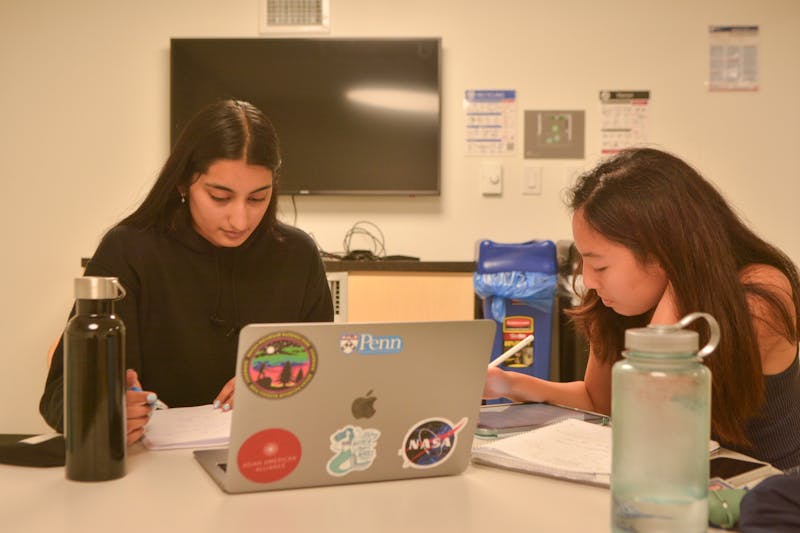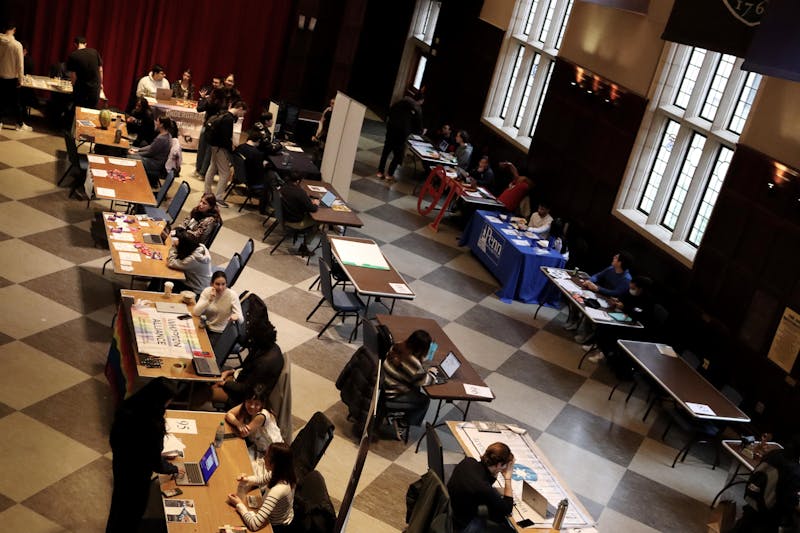
Columnist Jessey Shin explores the problem of disparate advising quality in the College and argues
for a more standardized experience.
“My advisor lied to me?”
I remember someone saying this to me in complete disbelief, but I can’t say I’m surprised. Advisors can be as misleading as they are helpful, and this is a widespread problem that needs addressing.
In the College, students typically have between 15 and 20 credits outside of their primary major to meet the graduation requirement. These are used to fulfill general education requirements, pursue a second major or minor, or take elective courses that align with a student’s interests.
The freedom to pursue one’s intellectual pursuits is, of course, one of the draws of the College. I am looking to pursue two majors myself, in somewhat interconnected but disparate fields of study: the flexibility offered by the curriculum allows me to explore these interests without taking an obscene number of classes.
The problem is few students go into their first year knowing which major they would like to pursue, much less exactly which courses to take.
The College puts a lot of effort into informing incoming students about the curriculum and what they have to offer, such as through the Compass module on Canvas that gives a foray into some aspects of the College experience (something that other schools do not offer). However, the sheer number of options can be overwhelming, giving rise to a unique need for personalized, one-on-one guidance. This is where pre-major advisors come in.
Pre-major advisors, assigned to each student before they start their first semester at Penn, are a vital resource for College students. They guide students through the course selection process, encouraging and helping them as they explore their various interests and eventually settle on a major.
I can say that I have had a relatively good experience with my pre-major advisor. However, I also found that some of the advice offered was not fully applicable to my circumstance, because of the recent transition from Penn InTouch to Path@Penn.
Other students, however, are not as lucky. I have heard stories about advisors making their students cry, spreading misinformation, jeopardizing their advisees’ course registration, you name it.
In an interview, one student (who requested anonymity) shared that they have had trouble reaching their pre-major advisor from the get-go. College students must meet with their advisor one-on-one to get their course registration hold lifted; without this, they are not eligible to participate in advance registration. The student was only able to reach their advisor a day or so before the deadline and has continued to have trouble with availability.
Of course, their pre-major advisor experience was less than ideal. “Her guidance wasn’t so much guidance as it was looking at the boxes and seeing if I checked them,” they said. “I don’t think I would feel comfortable going to her for personal issues, such as which major to pursue or how to explore [some of my interests], because I don’t think she would point me [in] the right direction.” Instead, they had been utilizing their PennCAP advisor (available for FGLI students) for these concerns.
On the other hand, some students are able to form a positive relationship with their advisor and find that they are helpful in navigating their interests. Rishi Dadlani, a College first year, described his advisor as “friendly and helpful. He gave me his phone number and told me to contact him if I [had] any questions … If I saw him around campus, I would say hi, and he always sends us a beginning-of-semester email.”
This disparity in advising quality means that some students are at a great disadvantage compared to others. While some advisors are able to “point students in the right direction,” helping them take the right step forward in their college experience, others fall short. Their advisees must navigate the complicated process of learning about the majors, gen-ed requirements, and figuring out (the surprisingly difficult) advance registration process on their own.
When done right, the freedom of the College curriculum can allow students to truly delve into their academic interests and eventually settle on the right path for them. However, that process requires a lot of research and planning that is supposed to be aided by a pre-major advisor. For incoming first years who are unfamiliar with the landscape at Penn and underclassmen students, this disparity in advising quality poses a challenge. Penn must ensure that all students are able to best utilize the resources at their disposal, and the first place to start is with the guidance they receive.
JESSEY SHIN is a College first-year studying sociology and communications from Seongnam-si, South Korea. Their email is jessey0@sas.upenn.edu.
The Daily Pennsylvanian is an independent, student-run newspaper. Please consider making a donation to support the coverage that shapes the University. Your generosity ensures a future of strong journalism at Penn.
Donate












